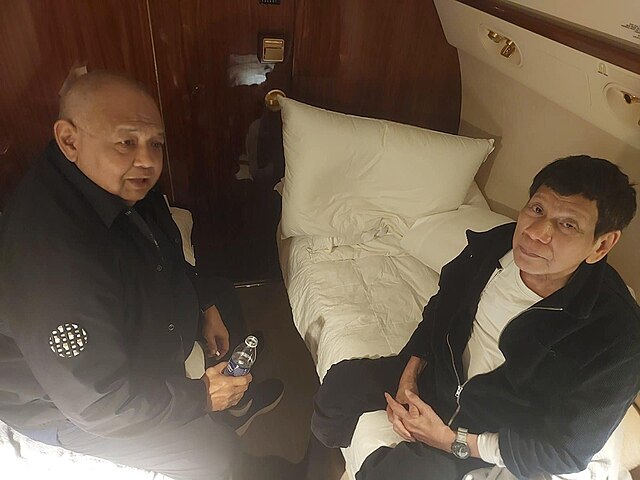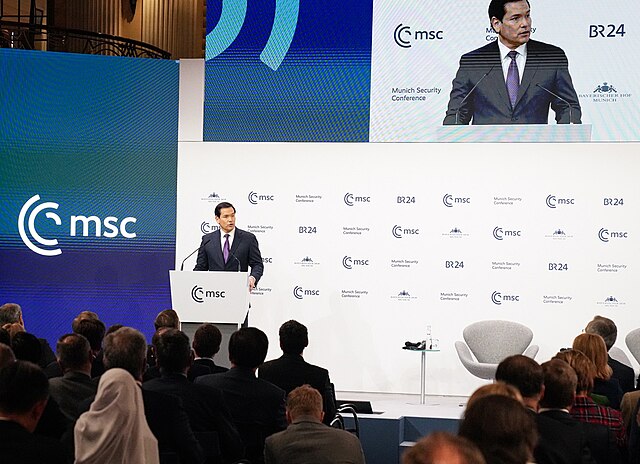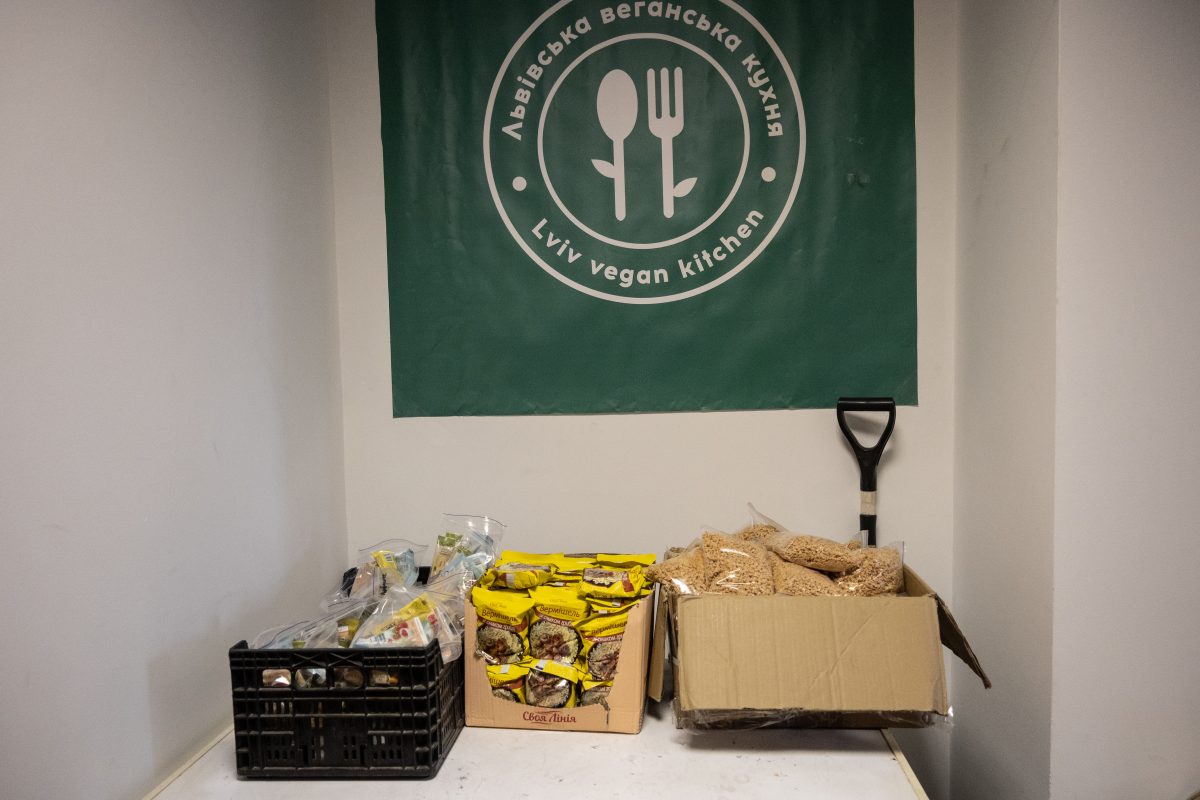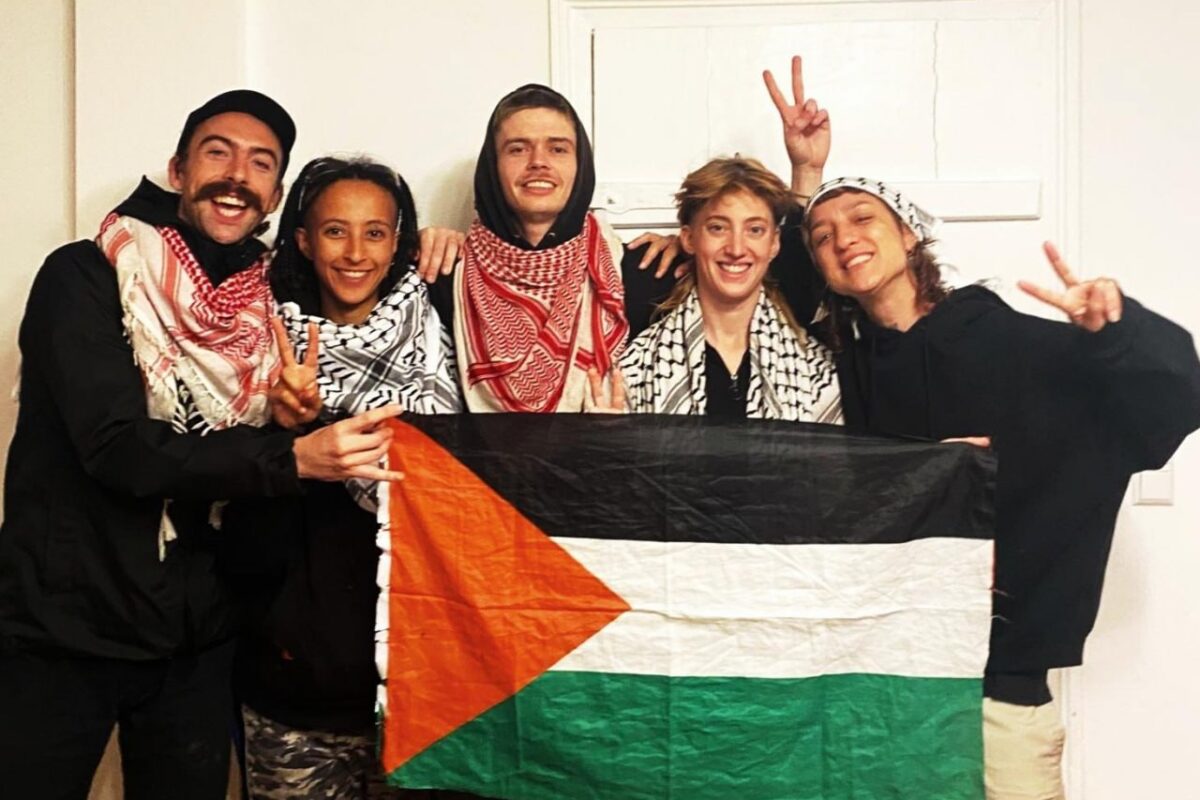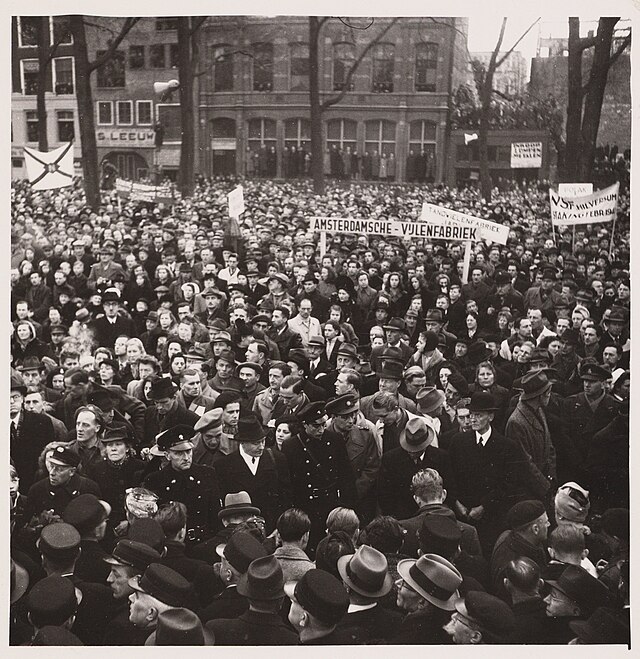March 11, 2025 was a momentous day for victims of Former President Rodrigo Duterte’s (FPRD) bloody fake war on drugs. It was when Duterte’s bluster ended as he was arrested by the Philippine National Police (PNP) by virtue of the warrant of arrest issued by the International Criminal Court (ICC), and was flown to the Hague, Netherlands.
This was poetic justice for the Filipino people who suffered from state-instigated terrorism under Duterte’s presidency. FPRD’s trial in the ICC opens a new frontier for Filipinos’ struggle for justice and serves as a warning for other despots.
ICC jurisdiction over Duterte
The ICC’s decision to pursue the investigation into Duterte’s war on drugs is not only lawful—it is essential for upholding human rights and international accountability. Duterte is the first Asian leader to be tried at the ICC.
Under Philippine laws, the President is immune from civil, criminal, and administrative suits while holding office. This immunity covers both official and personal acts, as long as the President remains in office. However, after leaving office, the individual no longer enjoys this privilege. In line with developments in international law, certain crimes, such as crimes against humanity, war crimes, and genocide, may not be covered by presidential immunity. Although the Philippines does not have a specific ruling addressing this directly, international tribunals, such as the International Criminal Court (ICC), have held that heads of state are not immune from prosecution for international crimes.
The ICC’s jurisdiction over the Philippines has been a topic of heated debate, especially since the country officially withdrew from the Rome Statute in 2019. Duterte and his allies argue that this withdrawal nullifies any ICC investigation.
Feeling threatened by the ICC investigation, Duterte while still in office withdrew from the ICC on March 17,2018 which took effect on March 17, 2018. The Philippines signed the Rome Statute on December 28,2000 and was accepted as member of the ICC on August 30,2011.
This matter was brought to the Philippine Supreme Court (SC) for decision. On March 16, 2021 the high tribunal ruled that: President Duterte cannot evade investigation by the ICC prosecutor on the charge that he committed the “crime against humanity of murder” in his “war on drugs” by invoking the country’s withdrawal from the court, which he ordered in March 2018, taking effect a year later.
“Withdrawing from the Rome Statute does not discharge a state party from the obligations as a member,” the ruling says.
“Consequently, liability for the alleged summary killings and other atrocities committed in the course of the war on drugs is not nullified or negated…” the SC declared.
It must be noted that the Philippines has enacted REPUBLIC ACT NO. 9851 titled “AN ACT DEFINING AND PENALIZING CRIMES AGAINST INTERNATIONAL HUMANITARIAN LAW, GENOCIDE AND OTHER CRIMES AGAINST HUMANITY, ORGANIZING JURISDICTION, DESIGNATING SPECIAL COURTS, AND FOR RELATED PURPOSES” on December 11, 2009. Basically it is a mirror copy of the Rome Statute applied to national context. This legislation predates Philippine membership in the ICC.
No less that the current Department of Justice (DOJ) Secretary Remulla testified in the Senate hearing concerning the legality of Duterte’s turn-over to the ICC, that no serious effort at investigation, m against Duterte in Philippine courts after he was replaced by now President Marcos Jr..
Philippine presidents serve only a six year term without reelection. Duterte’s term started on June 30, 2016 and ended on June 30,2022.
The principle of complementarity governs the exercise of the ICC jurisdiction. The Statute recognizes that States have the first responsibility and right to prosecute international crimes. The ICC may only exercise jurisdiction where national legal systems fail to do so, including where they purport to act but in reality are unwilling or unable to genuinely carry out proceedings. The principle of complementarity is based both on respect for the primary jurisdiction of States and on considerations of efficiency and effectiveness, since States will generally have the best access to evidence and witnesses and the resources to carry out proceedings. Moreover, there are limits on the number of prosecutions the ICC, a single institution, can feasibly conduct.
Duterte’s crime against humanity
A review of President Rodrigo Duterte’s fourth year in office included a damning UN Office of the High Commissioner on Human Rights (OHCHR) report on widespread extrajudicial killings, the passage of a widely contested anti-terrorism legislation and a bungled response to the coronavirus pandemic.
According to the Philippine Drug Enforcement Agency, between 1 July 2016 and 31 January 2020 the police killed 5,601 people. Various government agencies have put out conflicting figures and have proved reluctant to disclose documents relating to the killings to the Supreme Court and the Commission on Human Rights.
There are also reports of widespread drug-related killings perpetrated by unidentified “vigilantes”. Duterte administration’s 2017 year-end report mentions 16,355 “homicide cases under investigation” as accomplishments in the fight against illegal drugs. This prompted the Supreme Court to raise the possibility that the killings were State-sponsored. Noting that drugs operations by the police and homicides perpetrated by unidentified persons resulted in 20,322 deaths from July 1, 2016 to November 27, 2017, the Supreme Court demanded an explanation for the staggering average of nearly 40 deaths per day. In March 2019, the police claimed that although 29,000 deaths were labelled as “deaths under inquiry” between July 1,2016 and February 4,2019, only 3,062 (9.47 per cent) were drug-related. A previous study, however, had found that the police severely underreported the percentage of drug-related killings among homicides.
The noisy well-funded Duterte troll farm creates an illusion that majority of Filipinos don’t agree that Duterte face trial in the ICC. They impact significantly in the political discourse in the Philippines. Filipinos spend so much time online — they average a staggering 10 hours a day!
However, poll survey on the issue show that majority of Filipinos favor that Duterte to undergo trial for his case of crimes against humanity. Duterte’s powerful influence in the Philippines make it impossible for victims of his bloody war on drugs to have justice. They support the ICC.
Philippines should rejoin the ICC
It is to the best interest of Filipinos that the Philippines should rejoin the ICC. The international Tribunal serves as the court of last resort for ordinary Filipinos. The judicial system in the Philippines is heavily skewed in favor of the rich and powerful, justice is denied to those who are economically and politically disadvantaged. Even the UN OHCHR supports this idea.
Duterte is the second former Philippine president to be tried outside of the country. The first was former Dictator Ferdinand Marcos Sr., the father of now president Marcos Jr.. Like Duterte, he was also tried outside the Philippines because it was impossible to hold him accountable for his crimes against the Filipino people in the country. Marcos Sr. was tried and convicted in Hawaii District Court in the U.S.A. after he was ousted as martial law dictator in the Philippines.
Today international developments favor the strengthening of international tribunals as courts of last resort for aggrieved peoples and states. Even powerful states that hold themselves above the so-called “rules based international order” are held to account for their international crimes.
Established in 2002 and based in The Hague, the ICC is a criminal court that can bring cases against individuals for war crimes or crimes against humanity. In October 2024, there were 125 states parties to the Rome Statute.
ICC is different from the ICJ (International Court of Justice) as the latter tries cases involving countries, while the former is a criminal court, which brings cases against individuals for war crimes or crimes against humanity. While the ICJ is an organ of the United Nations, the ICC is legally independent of the UN, although it is endorsed by the General Assembly.
While not all 193 UN Member States are parties to the ICC, it can launch investigations and open cases related to alleged crimes committed on the territory or by a national of a State party to the ICC or of a State that has accepted its jurisdiction.
As war continues in Ukraine and Gaza, the ICC is coming under the spotlight, due to actions such as its issuing of an arrest warrant for Russian President Vladimir Putin in March 2023.
Recently it issued a request for arrest warrant for Israeli Prime Minister Benjamin Netanyahu and Defence Minister Yoav Gallant and three leaders of Hamas, the de facto authorities in Gaza.
In the midst of a world marked by conflict and accountability crises, the conspicuous absence of major powers like the United States, Russia and China from the ICC casts a long shadow over the ideals of international justice.
Their refusal to sign up to the international court has sparked much heated debate since it was first set up in The Hague, Netherlands more than two decades ago.
Supporters of the International Criminal Court accuse the three global powers of hampering the court’s important investigations into war crimes, while opponents accuse the court of lacking political independence.
On 6 February 2025, United States President Donald Trump issued an Executive Order authorizing sanctions on the International Criminal Court (ICC) and its Chief Prosecutor Karim Khan. This Executive Order is intended to stop the ICC from undertaking its independent mandate. It also poses a significant threat to the ICC and its staff. UN experts strongly condemned the move, calling it “an attack on global rule of law” that undermines international justice.
The US sanctions pose a dire threat to the ICC, as well as to the broader international rule of law and its multilateral system. But there is still hope.
Many countries continue to support the ICC. In June 2024, 74 ICC member states affirmed their commitment to fighting impunity. After President Trump’s recent Executive Order, European Union foreign ministers declared their ‘unwavering support’ for the Court.
Top EU diplomat Josep Borrell said all EU countries must carry out arrest warrants issued by the International Criminal Court (ICC) as members of the legal institution.
“It is not a political decision. It’s a decision of a court, of a court of justice,” Borrell said while in Amman. “This decision is a binding decision,” he added.
All members of the ICC are legally bound to carry out the decisions of the court, Borrell said. All of the European Union’s 27 member states (except Hungary) are members of the ICC, this includes them as well, he said.
Some political observers may hold the view that filing cases against perpetrators of heinous crimes in the ICC is a “hit of miss” thing, but for the marginalized Filipinos, the arrest and trial of former Philippine President Duterte in the ICC is a landmark achievement against impunity of a brutal tyrant who can never be tried effectively in the Philippines. It is also a strong warning to all despots in other parts of the world.
